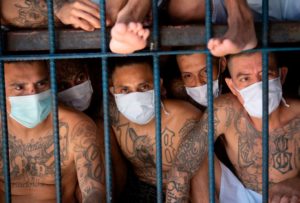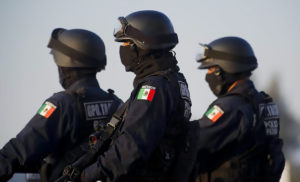Driving along El Salvador’s Pacific coast, I’m greeted by a sign: “Bitcoin Beach. The future is here.” As I turn onto a dirt road, another appears: “Pay in Bitcoin, $10 Pupusas and Beer”. Finally, I arrive at the beach — with its volcanic black sand, thunderous waves, and vendors selling refreshments for both cash and cryptocurrency. The Bitcoin logo of two lines through a “B” is plastered all over the resort, even spray-painted on plastic dustbins.
Bitcoin Beach, with its old shacks and gleaming new hotels, is home to an eclectic mix from El Salvador, the United States and beyond. Its residents include investors and fishermen, YouTubers and surfers, former beauty queens and former mercenaries. It is more than just a beach club; it is a symbolic landmark of an 18-month-old experiment to promote the cryptocurrency in El Salvador, whose economy is otherwise driven by farming, sweatshops and migrant remittances.
Salvador’s Bitcoin project is championed by globe-trotting entrepreneurs, known as “Bitcoiners”, but is also a key policy of President Nayib Bukele, a 41-year-old former marketing executive who has revolutionised politics for San Salvador’s six million inhabitants. Bukele is most famous for his crackdown on gangs, having suspended civil liberties and incarcerated 1% of the population. But while he has taken an authoritarian approach on crime, in Bitcoin he has embraced a flagship of many libertarians — the controversial blockchain system for digital payment transactions created by the pseudonymous Satoshi Nakamoto.
Bitcoin crept onto the world stage in 2008 and gradually rose in value, attracting hundreds of billions of dollars by the late 2010s. Amid various downturns and scandals (most recently the collapse of the FTX exchange), many dismiss the currency, but it still attracts investment and hardened Bitcoiners insist it will eventually replace physical cash. In September 2021, El Salvador became the first country to declare Bitcoin a legal currency, alongside its use of the US dollar. All Salvadorans received the equivalent of $30 if they signed up to the state-approved “Chivo Wallet”, while Bukele spent $100 million from Salvador’s state coffers on the crypto, shortly before it crashed, immediately diminishing this investment to $66 million. Despite this, Bukele announced “volcano bonds” to raise money for a tax-free Bitcoin City near the Conchagua volcano on the Gulf of Fonseca. At the 2021 Latin American Bitcoin and Blockchain Conference in El Salvador, Bukele was introduced with a giant screen displaying an avatar of him in his trademark hipster beard as a flying saucer beamed him down to earth.
For all the fanfare, it’s hard to figure out the mechanics of Bukele’s scheme, such as how Bitcoin City will pay for garbage collection with no tax. It is also unclear what the incentives are, with critics claiming it is really designed to attract money launderers. Like the currency itself, the experiment seems to mean different things to different people, have varying applications (some useful, some shams) and is as much about the image as the product. In short, Bitcoin El Salvador is as cryptic as the virtual money itself.
Likewise, it’s hard to classify exactly what Bitcoin Beach is. It is not an official district (and is not on Google Maps) but is part of an area called El Zonte. The Californian surfer, businessman and evangelical Christian Michael Peterson is credited with devising the concept in 2019, helping inspire Bukele to launch the currency nationally. Peterson had been visiting El Zonte for over a decade and conducted charity work through a non-profit called Missionsake. The Bitcoin Beach website describes itself as a Salvadoran initiative that Missionsake supports, and the beach as “a sustainable Bitcoin Economic ecosystem… where the majority of people do not have access to bank accounts”. However, while almost all businesses in the area accept the crypto, it’s unclear how many of their transactions use it; one vendor tells me it’s only a tiny amount and he uses those sales for savings.
The project headquarters can be found at Hope House, a white building emblazoned with an orange Bitcoin logo. There, I meet Jorge Valenzuela, a 33-year-old “coordinator” from Zonte. Valenzuela says Bitcoin Beach is registered as an educational and social project which has taught local youths to get a foot in the financial system. But he concedes there are other goals, too. “We can do transactions in Bitcoin and it works. But beyond this there is tourism, economy, new jobs, opportunities, many journalists coming here to see what is going on,” he says. “We have changed the country now. The country of pupusas. The country of waves. The country of Bitcoin. The country of good people. Now nobody is remembering a bad country.”
As successful Bitcoiners have shown, crypto can be promoted not just as a currency or investment but as a lifestyle choice, involving living by the beach, working remotely, and rejecting government interference. Down the road in a gated community, I meet some of those attracted to this newfound libertarian side of Salvador. Nicki and James are a pair of Bitcoiners who moved from New Zealand in early 2022. James was an early adopter of Bitcoin from an entrepreneurial family; Nicki worked in finance. They met during the pandemic as New Zealand’s lockdown restrictions were getting increasingly harsh, especially for the unvaccinated. “They made a two-tier society. You couldn’t go to a café. You couldn’t get your hair cut. You couldn’t do all those things,” Nicki says.
Then, in November 2021, El Salvador became one of the first countries in the world to remove all Covid travel restrictions. Nicki and James sold up, said goodbye to their families and began a new life by the Pacific, as well as a new YouTube show. Like the few hundred foreign Bitcoiners in the country, they do a mixture of remote work and social media in addition to investing in crypto. As well as saving Bitcoin, they also spend it at the local stores, using apps that can facilitate rapid transactions. “It’s really important for us to utilise it in both ways,” says Nicki. “Eventually, it would be really great to see the fiat system go.” James sees their decision as political: “We literally moved our monetary choices and our time spent to another currency system in another country,” he says. “That’s a really strong vote in our mind.”
The most famous Bitcoiners in the area are Max Keiser and his wife Stacy Herbert, formerly co-hosts of a financial news show on Russia Today. They are considered advisers to Bukele on Bitcoin, a badge that Keiser proudly announces on his Twitter handle to his half a million followers. Their podcast “Orange Pill” applauds Bukele, and discusses Bitcoin in terms laced with near-religious zealotry. “There is always a counterforce for everything in the universe, and Bitcoin is the counterforce to all this: that money-printing; those warmongers; those plunderers,” Herbert said in a recent episode. “Bitcoin cannot be stopped.”
One area where Bitcoin could certainly take off is with remittances, the money migrants send home from their work abroad, mostly in the US. In 2021, migrants wired $7.5 billion to El Salvador, representing more than a quarter of its entire GDP. They often send it in small amounts to their families, and pay high fees using transfer services such as Western Union. Bitcoin, with its blockchain technology, could massively reduce these.
In the more deprived areas of the capital San Salvador, however, residents seem less enthusiastic. Flogging bananas on a stall in the Margaritas slum, Yamileth Gonzalez, 40, says she received her initial $30 with the Chivo Wallet but hasn’t used it since. “It’s fiddly. A hassle. I prefer cash,” she says, although she is a firm Bukele supporter. Meanwhile, less than 2% of remittances used crypto. The migrants sweating in fields and restaurants seem to lack the patience and trust to turn their earnings into Bitcoin. This isn’t too surprising: many cryptocurrency ATMs in the country appear to be broken. Standing on a street corner in San Salvador, I watch a line of people try to use one, only to walk away empty-handed.
Yet a few streets away, there are signs of El Salvador’s Bitcoin revolution taking shape. Outside Chivo Pets, a government pet hospital that charges in Bitcoin, a trail of dog owners bursts out of the waiting room and onto the street. Here, customers who pay in Bitcoin are charged massively reduced fees — just a few dollars for hundreds of dollars worth of treatment. One queuing dog-owner, Veronica Serrano, tells me she is not a supporter of Bukele but thinks that launching Bitcoin was a popular policy, despite people not using it much. “People like the idea of Bitcoin because it seems modern and futuristic. It seems like we are going forward,” she says.
This strikes me as a key motivation for Bukele, a marketing executive who is very tuned in to the image of his policies. In terms of its PR value, for Bukele, the country’s broken crypto ATMs are a sideshow. As long as places like Bitcoin Beach and Chivo Pets continue to succeed and dominate the headlines, there will always be a victory for him to sell.
Disclaimer
Some of the posts we share are controversial and we do not necessarily agree with them in the whole extend. Sometimes we agree with the content or part of it but we do not agree with the narration or language. Nevertheless we find them somehow interesting, valuable and/or informative or we share them, because we strongly believe in freedom of speech, free press and journalism. We strongly encourage you to have a critical approach to all the content, do your own research and analysis to build your own opinion.
We would be glad to have your feedback.
Source: UnHerd Read the original article here: https://unherd.com/




